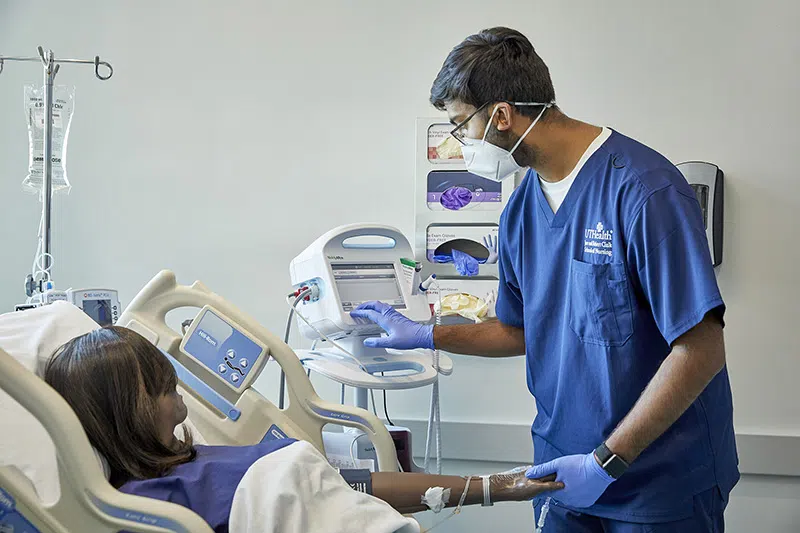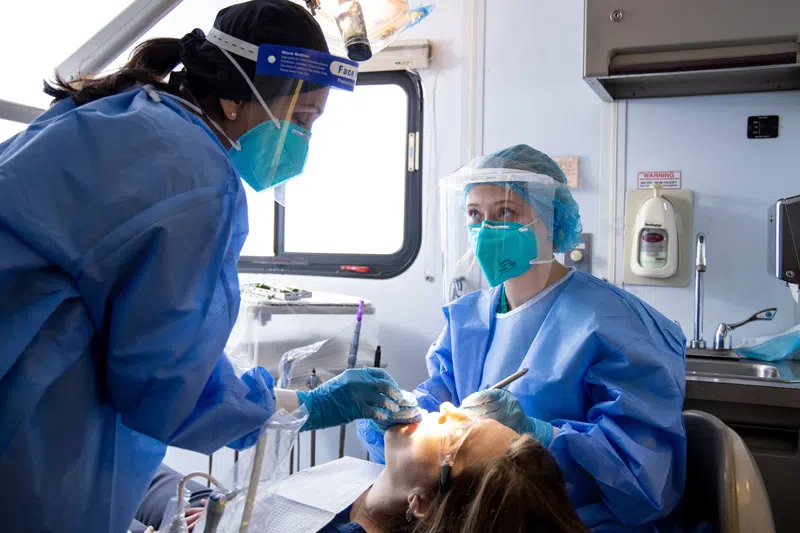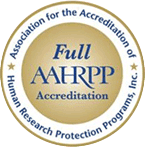POLICY
For research that is funded or supported by the Department of Education, the IRB will ensure compliance with Department of Education regulations Protection of Pupil Rights Amendment (PRPA - 34 CFR Part 98) and Family Educational Rights and Privacy Act (FERPA - 34 CFR Part 99) are met.
KEY TERMS
Children – Department of Education defines children as persons not above the elementary or secondary education level, who have not reached the age or majority as determined under state law. Under Texas state law, children are persons who are less than 18 years of age.
FERPA - The Family Educational Rights and Privacy Act (FERPA) is a Federal law that protects the privacy of student education records.
PRPA - Protection of Pupil Rights Amendment (PRPA) is a Federal law that is intended to protect rights of parents and students by ensuring that schools and contractors make instructional materials available for inspection by parents if those materials will be used in connection with an ED-funded survey, analysis, or evaluation in which their children participate; and that schools and contractors obtain written parental consent before minor students are required to participate in any ED-funded survey, analysis, or evaluation that reveals specific information (outlined below).
PROCEDURE
Approval from School District: IRB staff will ensure that the school district approval letters are submitted with the research proposal. If school approval letters are not included with the initial submission, the research is not approved until the letters are submitted.
Schools that receive US Department of Education funding are required to comply with ‘The Family Educational Rights and Privacy Act (FERPA)’. FERPA is a Federal law that protects the privacy of student education records. Under FERPA, schools must have written permission from the parent or eligible student in order to release any information from a student's education record. Education records may be released without consent under FERPA if all personally identifiable information has been removed including:
- Student’s name and other direct personal identifiers, such as the student’s social security number or student number.
- Indirect identifiers, such as the name of the student’s parent or other family members; the student’s or family’s address, and personal characteristics or other information that would make the student’s identity easily traceable, date and place of birth, and mother’s maiden name.
- Biometric records, including one or more measurable biological or behavioral characteristics that can be used for automated recognition of an individual, including fingerprints, retina and iris patterns, voiceprints, DNA sequence, facial characteristics, and handwriting.
- Other information that, alone or in combination, is linked or linkable to a specific student that would allow a reasonable person in the school community, who does not have personal knowledge of the relevant circumstances, to identify the student with reasonable certainty.
Informed Consent/Parental Permission Requirements - Research funded by the Department of Education must comply with additional protections under Protection of Pupil Rights Amendment (PRPA, 34 CFR Part 98). Under PRPA, no student shall be required, as part of any research project, to submit without prior consent to surveys, psychiatric examination, testing, or treatment, in which the primary purpose is to reveal information concerning one or more of the following:
- Political affiliations.
- Mental and psychological problems potentially embarrassing to the student or his or her family.
- Sex behavior and attitudes.
- Illegal, anti-social, self-incriminating, and demeaning behavior.
- Critical appraisals of other individuals with whom the student has close family relationships.
- Legally recognized privileged and analogous relationships, such as those of lawyers, physicians, and ministers.
- Religious practices, affiliations, or beliefs of the student or student’s parent.
- Income, other than that required by law to determine eligibility for participation in a program or for receiving financial assistance under a program.
Prior consent means prior consent of the student, if the student is an adult or emancipated minor; or prior written consent of the parent or guardian, if the student is an un-emancipated minor.
Exception to written permission: An educational agency may disclose personally identifiable information from an education record of a study without consent if the disclosure is to organizations conducting studies for, or on behalf of, educational agencies or institutions to:
- Develop, validate, or administer predictive tests,
- Administer student aid programs,
- Improve instruction.
Requests for waiver of written permission from parents or assent of students for records release are reviewed by the IRB. A school district or postsecondary institution that uses this exception is required to enter into a written agreement with the University or with the investigator conducting the research that specifies:
- The determination of the exception.
- The purpose, scope, and duration of the study.
- The information to be disclosed.
- That information from education records may only be used to meet the purposes of the study stated in the written agreement and must contain the current requirements in 34 CFR 99.31(a) (6) on re-disclosure and destruction of information.
- That the study will be conducted in a manner that does not permit personal identification of parents and students by anyone other than representatives of the university with legitimate interests.
- That the University is required to destroy or return all personally identifiable information when no longer needed for the purposes of the study.
- The time period during which the university must either destroy or return the information
Education records may be released without consent under FERPA if all personally identifiable information has been removed including:
- Student’s name and other direct personal identifiers, such as the student’s social security number or student number.
- Indirect identifiers, such as the name of the student’s parent or other family members; the student’s or family’s address, and personal characteristics or other information that would make the student’s identity easily traceable, date and place of birth, and mother’s maiden name.
- Biometric records, including one or more measurable biological or behavioral characteristics that can be used for automated recognition of an individual, including fingerprints, retina and iris patterns, voiceprints, DNA sequence, facial characteristics, and handwriting.
- Other information that, alone or in combination, is linked or linkable to a specific student that would allow a reasonable person in the school community, who does not have personal knowledge of the relevant circumstances, to identify the student with reasonable certainty.
Research not funded by the US Department of Education: For research not funded by the Department of Education that is conducted in schools, IRB staff will verify compliance with Department of Education regulations that schools are required to develop and adopt policies in conjunction with parents regarding the following:
- The right of a parent of a student to inspect, upon the request of the parent, a survey created by a third party before the survey is administered or distributed by a school to a student.
- Any applicable procedures for granting a request by a parent for reasonable access to such survey within a reasonable period of time after the request is received.
- Arrangements to protect student privacy that are provided by the agency in the event of the administration or distribution of a survey to a student containing one or more of the following items (including the right of a parent of a student to inspect, upon the request of the parent, any survey containing one or more of such items):
- Political affiliations or beliefs of the student or the student’s parent.
- Mental or psychological problems of the student or the student’s family.
- Sex behavior or attitudes.
- Illegal, anti-social, self-incriminating, or demeaning behavior.
- Critical appraisals of other individuals with whom respondents have close family relationships.
- Legally recognized privileged or analogous relationships, such as those of lawyers, physicians, and ministers.
- Religious practices, affiliations, or beliefs of the student or the student’s parent.
- Income (other than that required by law to determine eligibility for participation in a program or for receiving financial assistance under such program).
- The right of a parent of a student to inspect, upon the request of the parent, any instructional material used as part of the educational curriculum for the student.
- Any applicable procedures for granting a request by a parent for reasonable access to instructional material received.
- The administration of physical examinations or screenings that the school or agency may administer to a student.
- The collection, disclosure, or use of personal information collected from students for the purpose of marketing or for selling that information (or otherwise providing that information to others for that purpose), including arrangements to protect student privacy that are provided by the agency in the event of such collection, disclosure, or use.
- The right of a parent of a student to inspect, upon the request of the parent, any instrument used in the collection of personal information before the instrument is administered or distributed to a student.
- Any applicable procedures for granting a request by a parent for reasonable access to such instrument within a reasonable period of time after the request is received.
Parental Access to Instructional Material Used in a Research or Experimentation Program: When the research or experimentation program or project is designed to explore or develop new or unproven teaching methods or techniques, all instructional material—including teachers' manuals, films, tapes, or other supplementary instructional material—which will be used in connection with any research or experimentation program or project should be available for inspection by the parents or guardians of the children engaged in such program or project.
Special Circumstance: If the research purposefully includes children with disabilities or individuals with mental disabilities as research participants and is specifically funded by the National Institute on Disability and Rehabilitation Research, the IRB is required to include at least one person primarily concerned with the welfare of these research participants during the review process.
REGULATIONS
- 34 CFR 98 Protection of Pupils Rights Amendment
- 34 CRF 99 Family Educational Rights and Privacy Act
REFERENCE TO OTHER POLICIES
- Initial Review
ATTACHMENTS
- None
If you find errors in this document, contact [email protected]
|
Document Number:
|
101-C18
|
|
Document Name:
|
Research Involving Department of Education
|
|
Reviewed by:
|
Executive Director, Research Compliance
|
|
Revision History:
|
1 Nov 2011, 1 June 2016, 19 Jan 2018, 1 Jun 2021
|
CPHS HELPLINE 713-500-7943
iRIS HELPLINE 713-500-7960
UTHealth’s Compliance Hotline (1-888-472-9868)
IRB OFFICE HOURS Thursdays from 1 to 4pm, via the Teams Room at this link
How can we improve this site?


 Featured Donor
Featured Donor











